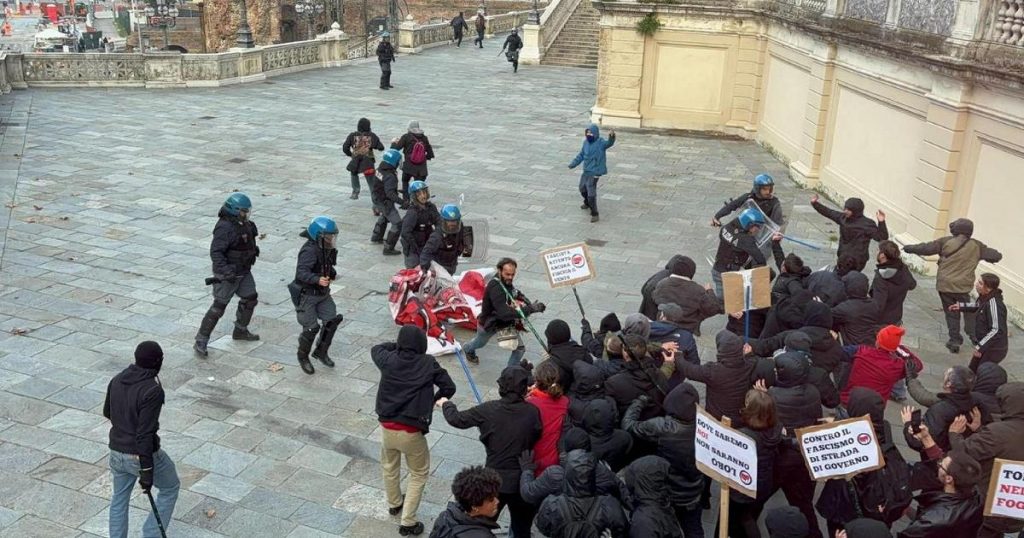The Mayor of Bologna, Matteo Lepore, addressed the recent protests in the city and the clashes between antagonists and social centers against law enforcement, in an attempt by the former to reach a Casa Pound rally. Lepore expressed his disappointment that Bologna was once again not respected, especially with the upcoming visit of right-wing politicians. He emphasized the need for funds for infrastructure, law enforcement, healthcare, and housing. He highlighted the significance of commemorating the 80th anniversary of the Battle of Porta Lame, which symbolizes the sacrifices made by partisans for the liberation of Italy and Bologna.
The events in Bologna unfolded on what was supposed to be the last Saturday of the election campaign, with clashes erupting between protesters and the police. The day was marked by a controversial right-wing demonstration near the site of a terrorist attack in 1980, triggering antifascist mobilization and counter-protests. Despite opposition from local authorities, the far-right rally proceeded near the central station, leading to confrontations and minor injuries. Student groups also joined the fray, further escalating tensions with law enforcement.
Mayor Lepore expressed his disapproval of the decision to allow the right-wing march to take place, given the potential risks to public safety. He criticized the handling of the situation and called for accountability from those responsible for authorizing the rally. Lepore also called for a focus on addressing the aftermath of a recent flood in the metropolitan area, urging visiting politicians to prioritize recovery efforts and support for the affected communities.
The aftermath of the clashes in Bologna saw accusations from the right-wing political figures against Mayor Lepore for not condemning the violence against law enforcement. The Lega party and Fratelli d’Italia criticized the lack of solidarity shown towards the police officers who were attacked during the protests. There were calls for a tougher stance against leftist activists and social centers, with accusations of escalating violence and disregard for democratic norms.
Amidst the political finger-pointing and tensions, there were conflicting narratives about the events in Bologna, with each side blaming the other for the escalation of violence. The incidents underscored the deep divisions within Italian society, particularly regarding historical memory, political ideology, and tactics of protest. The aftermath of the clashes raised questions about the role of law enforcement, the responsibilities of political leaders, and the need for dialogue and reconciliation in addressing societal challenges.















